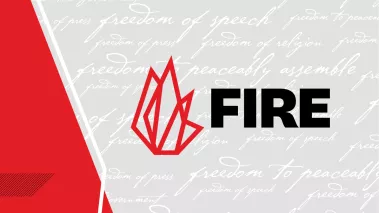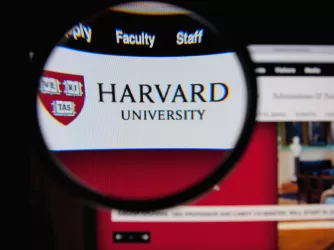Table of Contents
Victory for Freedom of Conscience

NEW BRUNSWICK, NJ — In a resounding victory for freedom of conscience, Rutgers University has lifted a ban on the InterVarsity Multi-Ethnic Christian Fellowship (Fellowship), a Christian student group. “This is an important event for everyone who values genuine pluralism and diversity,” said Alan Charles Kors, president of the Foundation for Individual Rights in Education (FIRE), which fought a campaign to restore the Fellowship to its most fundamental constitutional and moral rights.
The Fellowship was banned from campus in September 2002 because of its rule that “leaders must seek to adhere to biblical standards and belief in all areas of their lives.” Rutgers ruled that allowing a religious student group to select its leadership on the basis of religion constituted discrimination.
In December 2002, FIRE wrote to the president of Rutgers, to the members of the Board of Trustees and Board of Governors, and to the university’s major donors, urging the administration to undo the damage to the Fellowship. FIRE Legal Network attorney David A. French filed a lawsuit against Rutgers for violating the First Amendment rights of the Fellowship students. The lawsuit was funded by the Alliance Defense Fund, a public interest law organization based in Phoenix, Arizona. On April 1, 2003, Rutgers and the Fellowship released a joint statement announcing that they “have amicably resolved any and all issues regarding the status and governance of the fellowship.”
The Fellowship’s lawsuit against Rutgers, now withdrawn, had been filed in December in the United States District Court for the District of New Jersey. It charged the university with violations of the Fellowship’s constitutional rights to freedom of expression, free exercise of religion, due process, equal protection, and freedom of association.
Rutgers now assures the Fellowship that its voting members are permitted to take into account both their own religious beliefs and those of candidates when selecting and voting for their leaders. In addition, Rutgers has formally approved the organization’s constitution.
Vice President for Student Affairs Emmet A. Dennis declared, “This agreement places Rutgers at the forefront in demonstrating that the principles of inclusivity, diversity, free association and free expression are complementary, not contradictory.”
“This is a profoundly significant statement from a university these days,” said Kors. “We hope that it is read carefully by administrators everywhere.”
FIRE unites civil rights and civil liberties leaders, scholars, journalists, and public intellectuals across the political and ideological spectrum on behalf of individual rights, freedom of expression, due process, legal equality, the rights of conscience, and religious liberty on our campuses. In the past, FIRE has defended the rights of students of faith at University of North Carolina-Chapel Hill, Ball State University, Williams College, Middlebury College, and Tufts University, when administrations sought to punish voluntary student religious organizations for adopting language and policies that bore witness to their deeply held beliefs. In each of these cases, FIRE restored these students and groups to their legal and moral rights. FIRE’s efforts to preserve liberty at Rutgers University can be seen by visiting www.thefire.org.
Read the Fellowship-Rutgers April 2003 joint statement here.
CONTACT:
Thor L. Halvorssen, FIRE: 215-717-3473; fire@thefire.org
David A. French (Attorney for the Plaintiff): 859-288-4603; daf@gdm.com
Richard Jefferson, Alliance Defense Fund: 480-444-0020; media@alliancedefensefund.org
Richard L. McCormick, President of Rutgers University: 732-932-7454; koncsol@oldqueens.rutgers.edu
Recent Articles
FIRE’s award-winning Newsdesk covers the free speech news you need to stay informed.

Revoking Harvard’s tax-exempt status will threaten all nonprofits

Grandpa’s advice for the new wave of American censors

FIRE POLL: Only 1/4 of Americans support deporting foreigners for pro-Palestinian views
